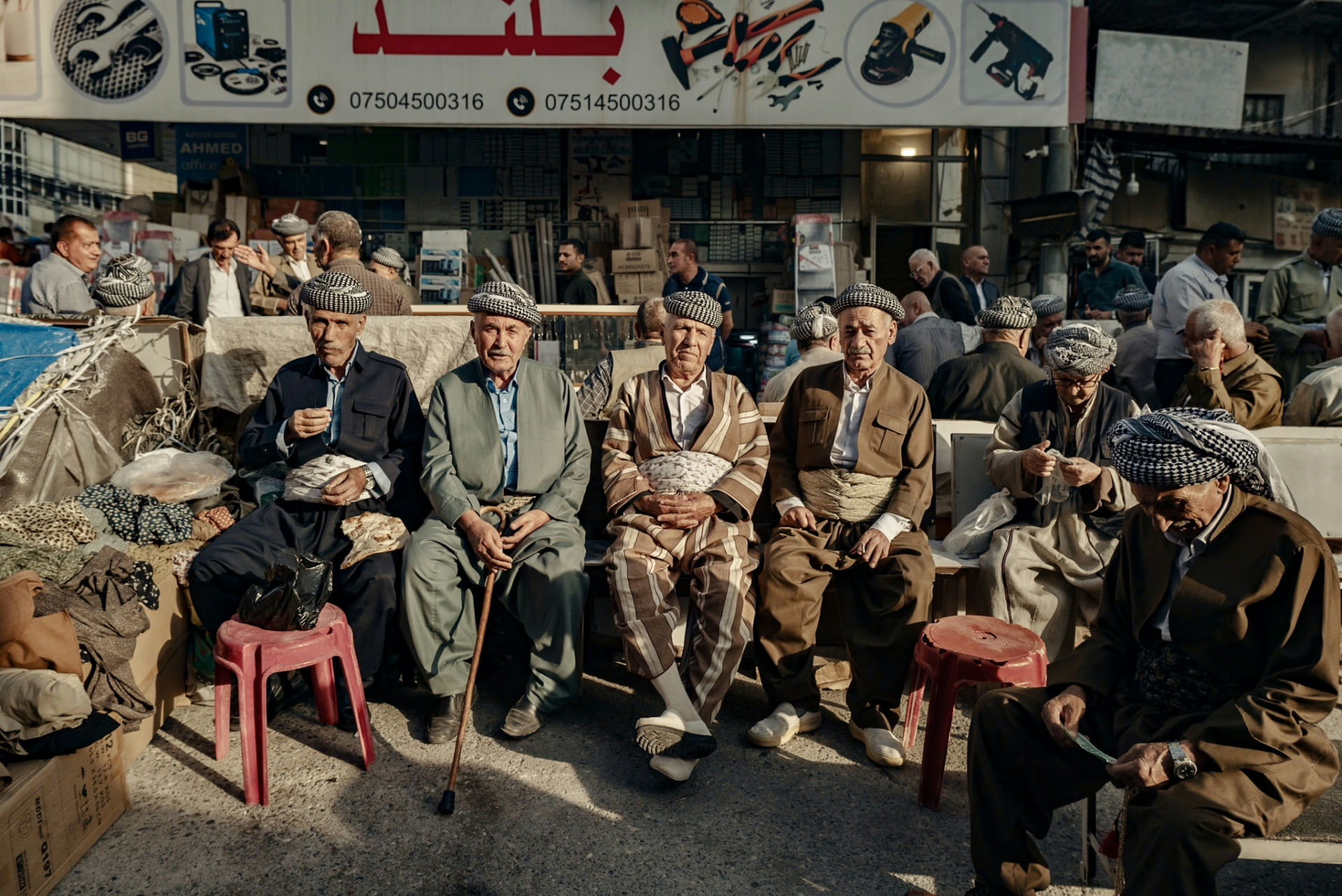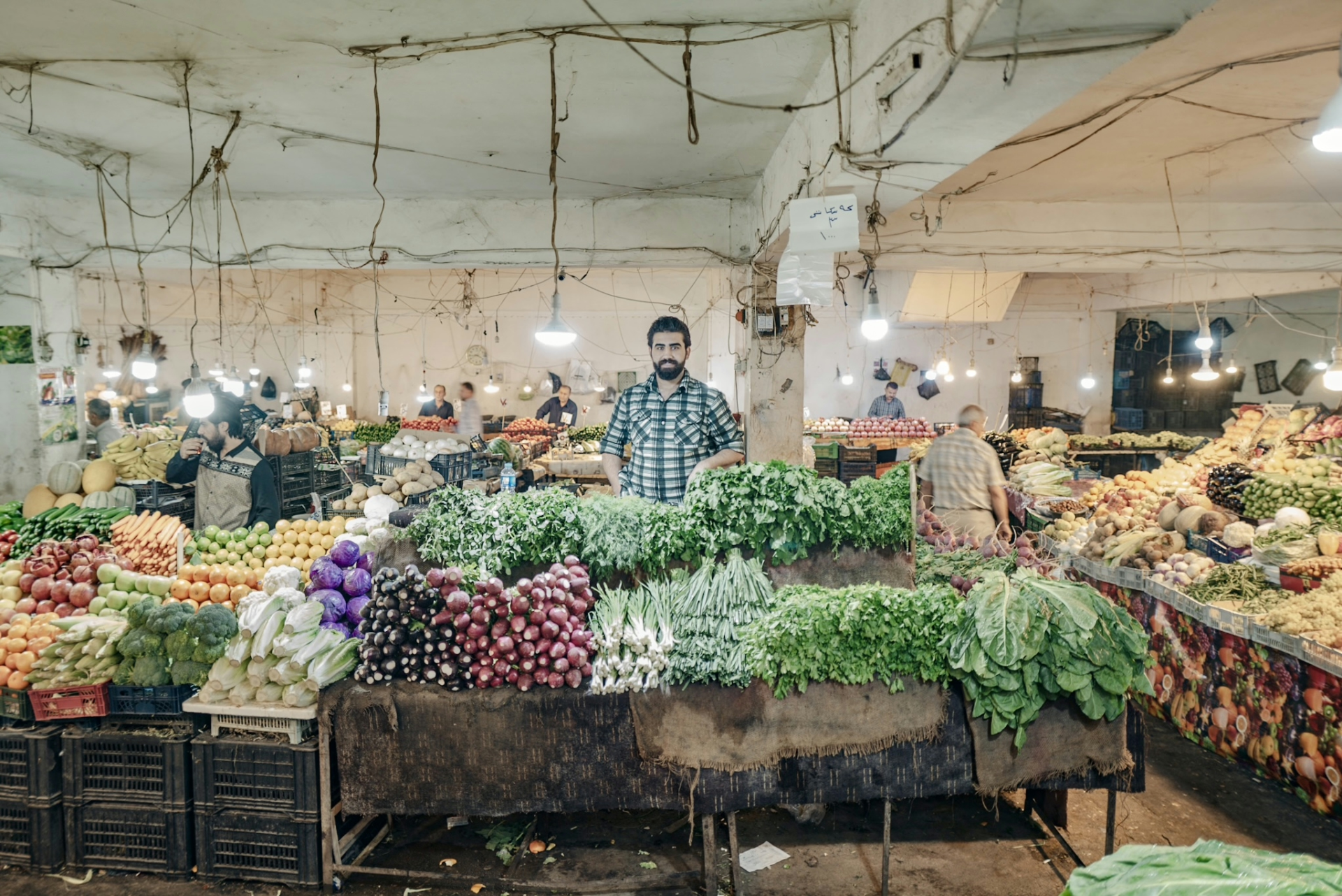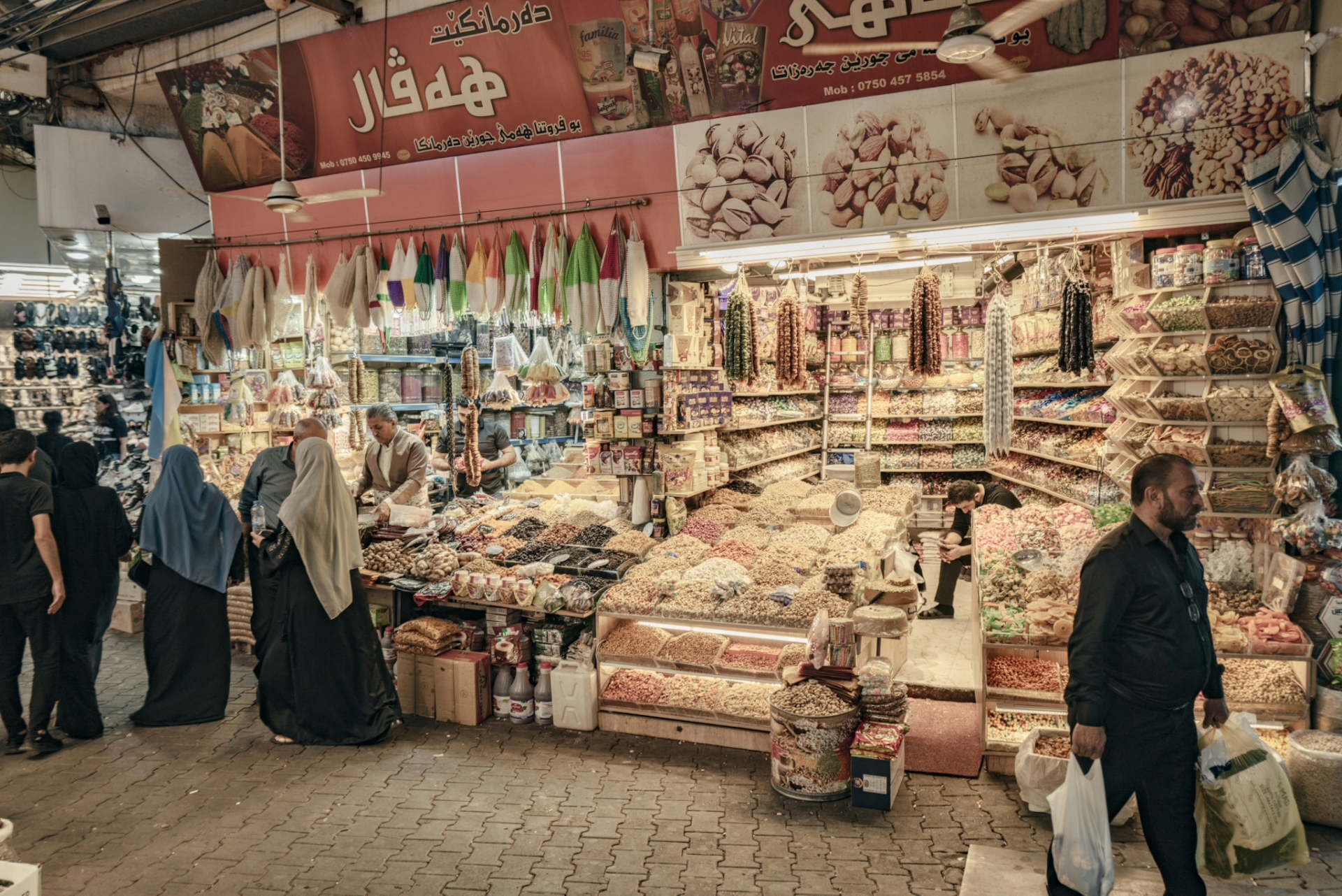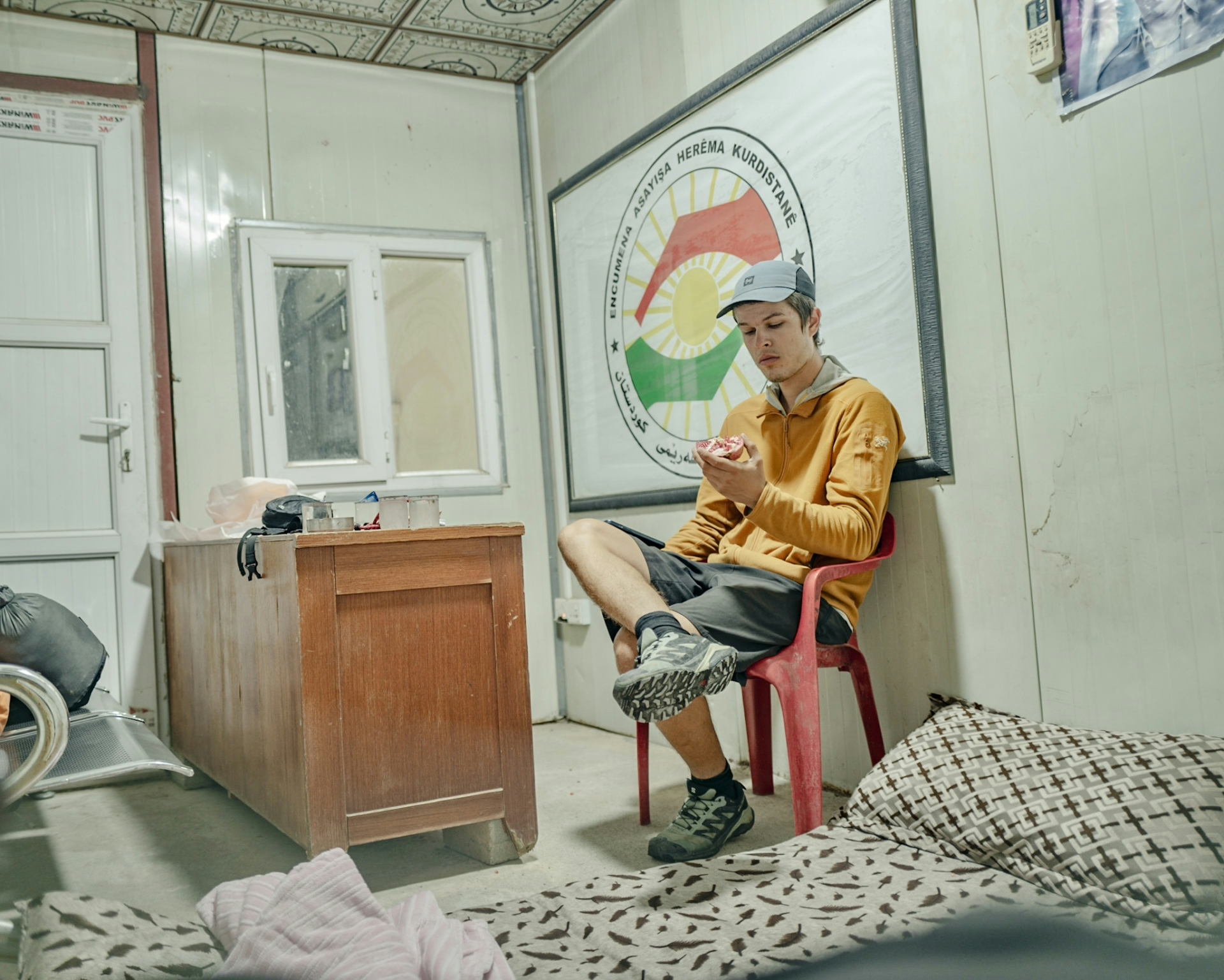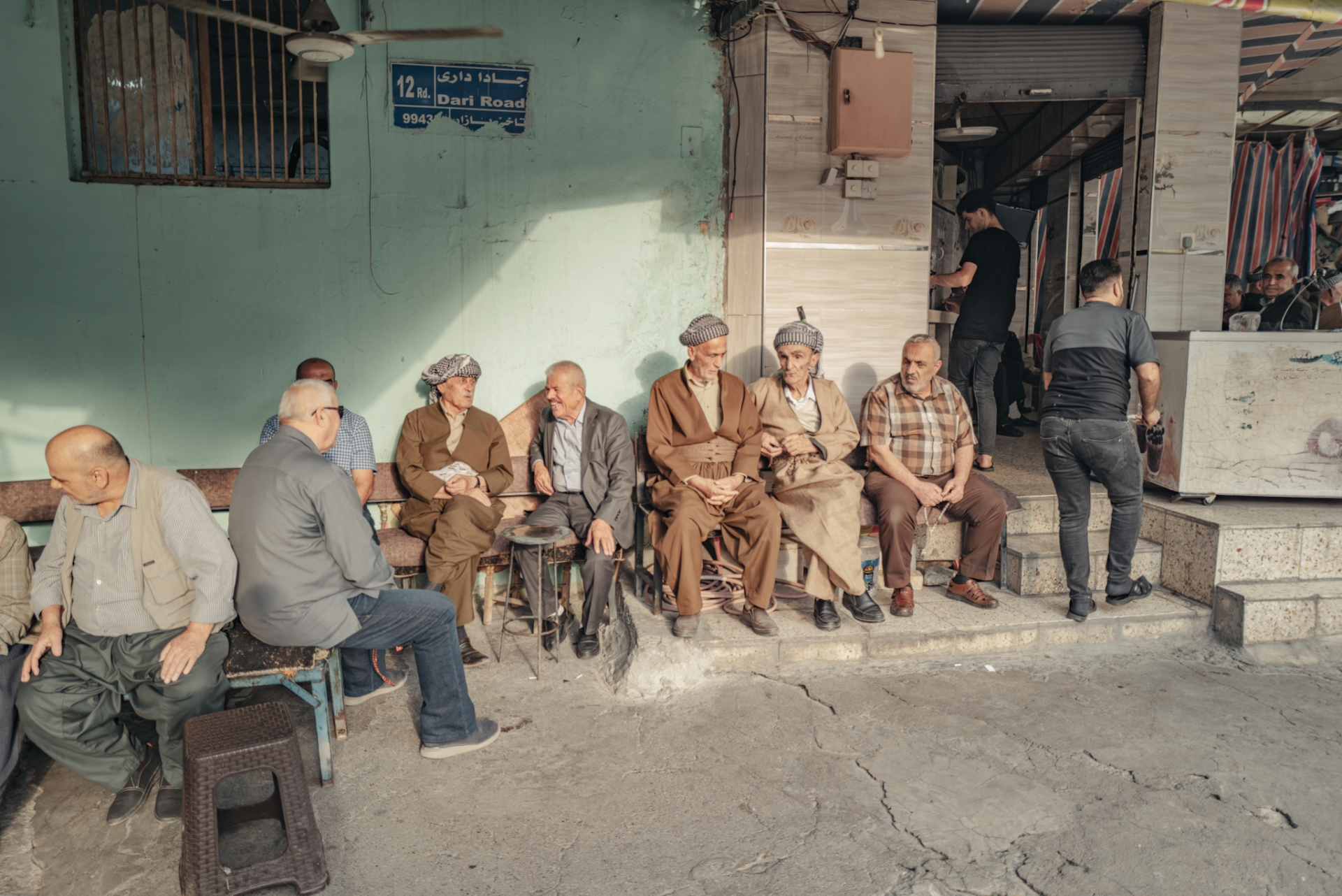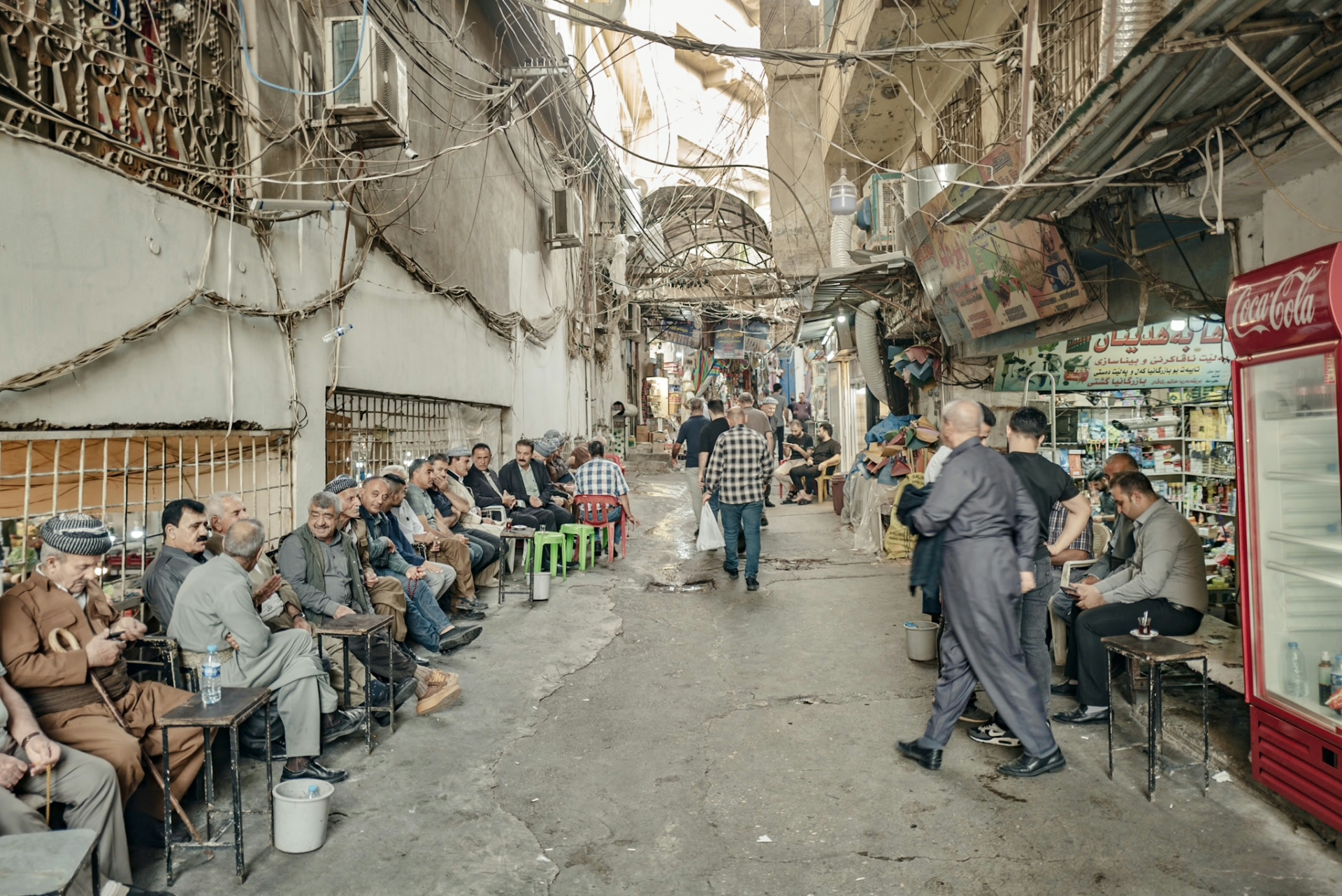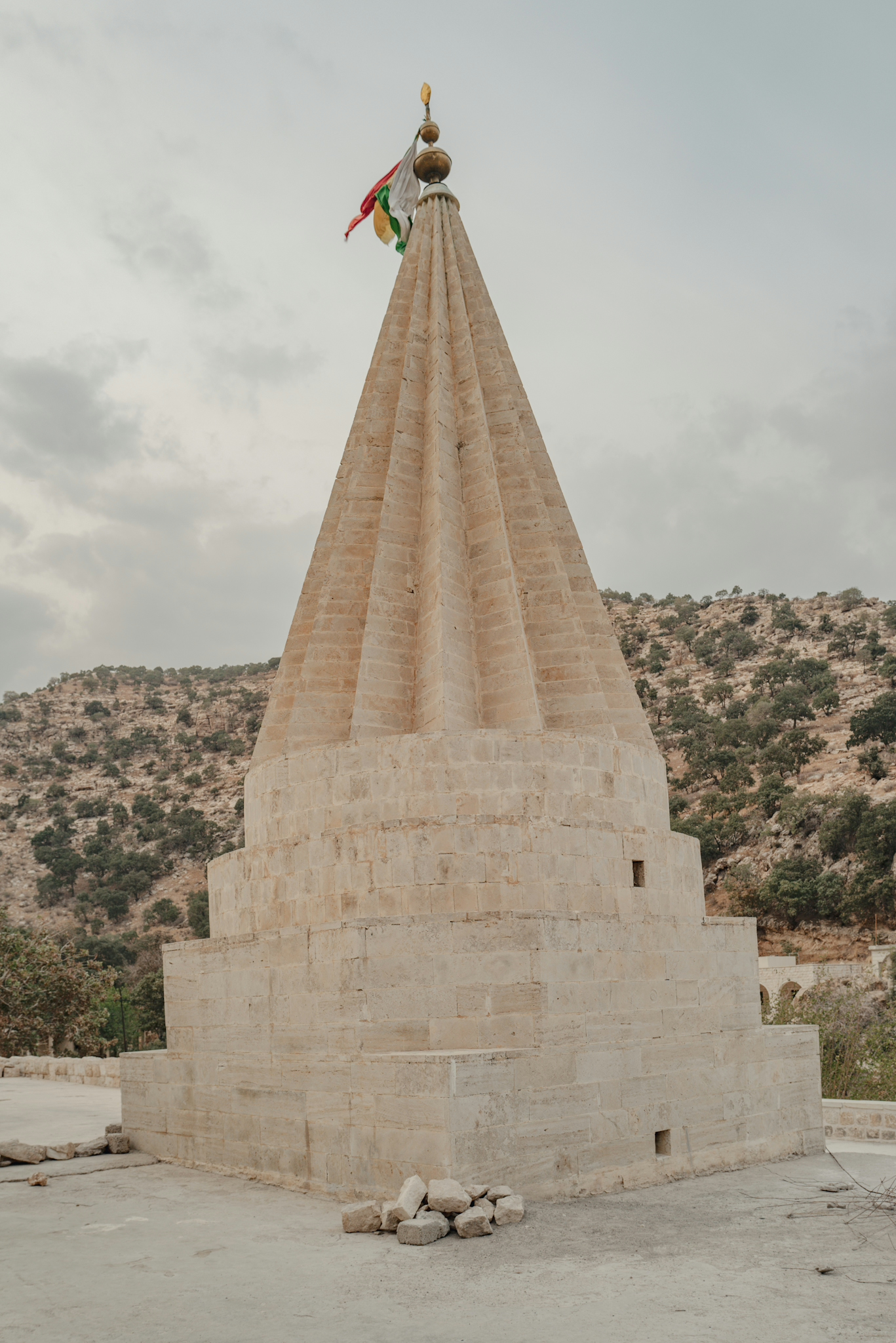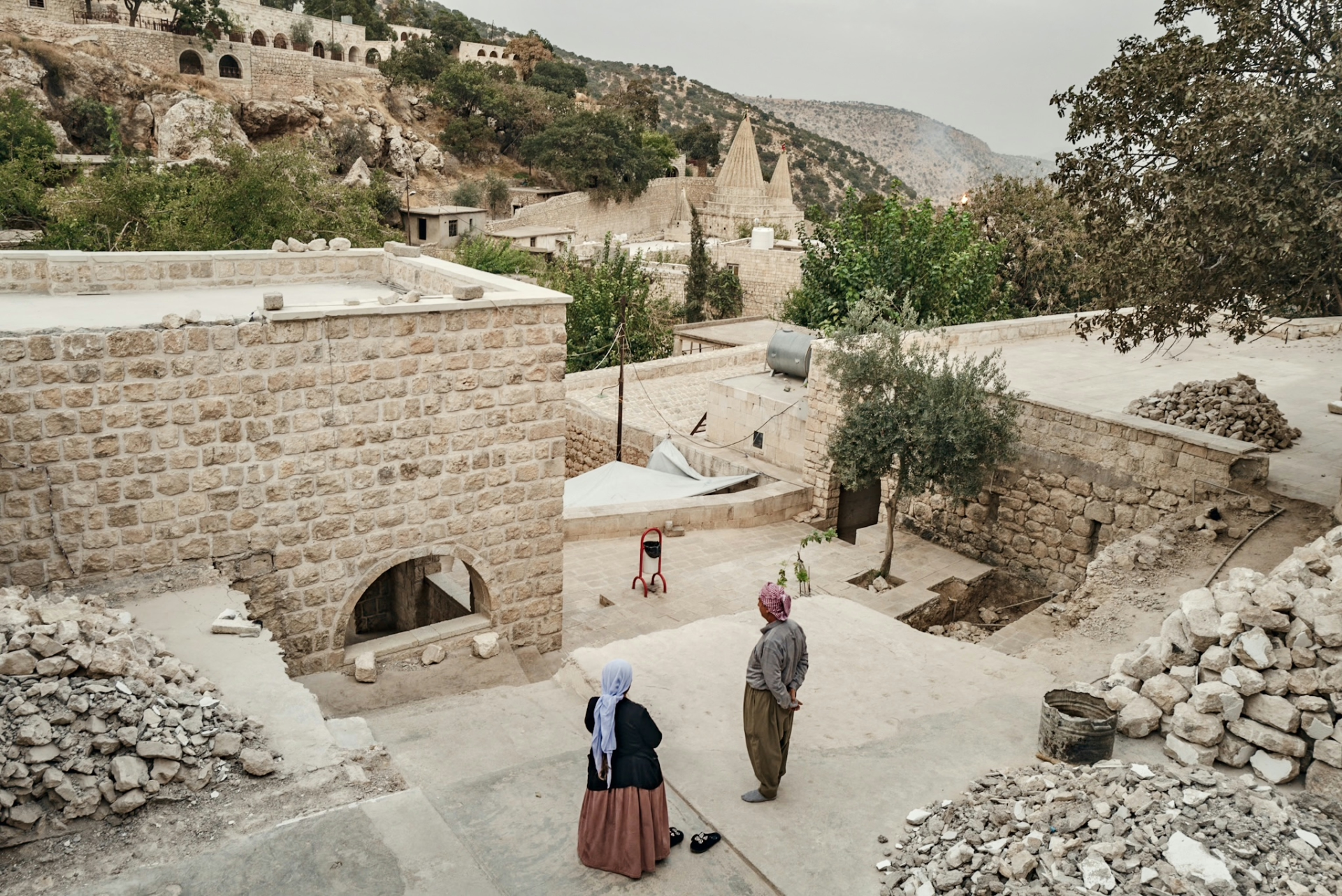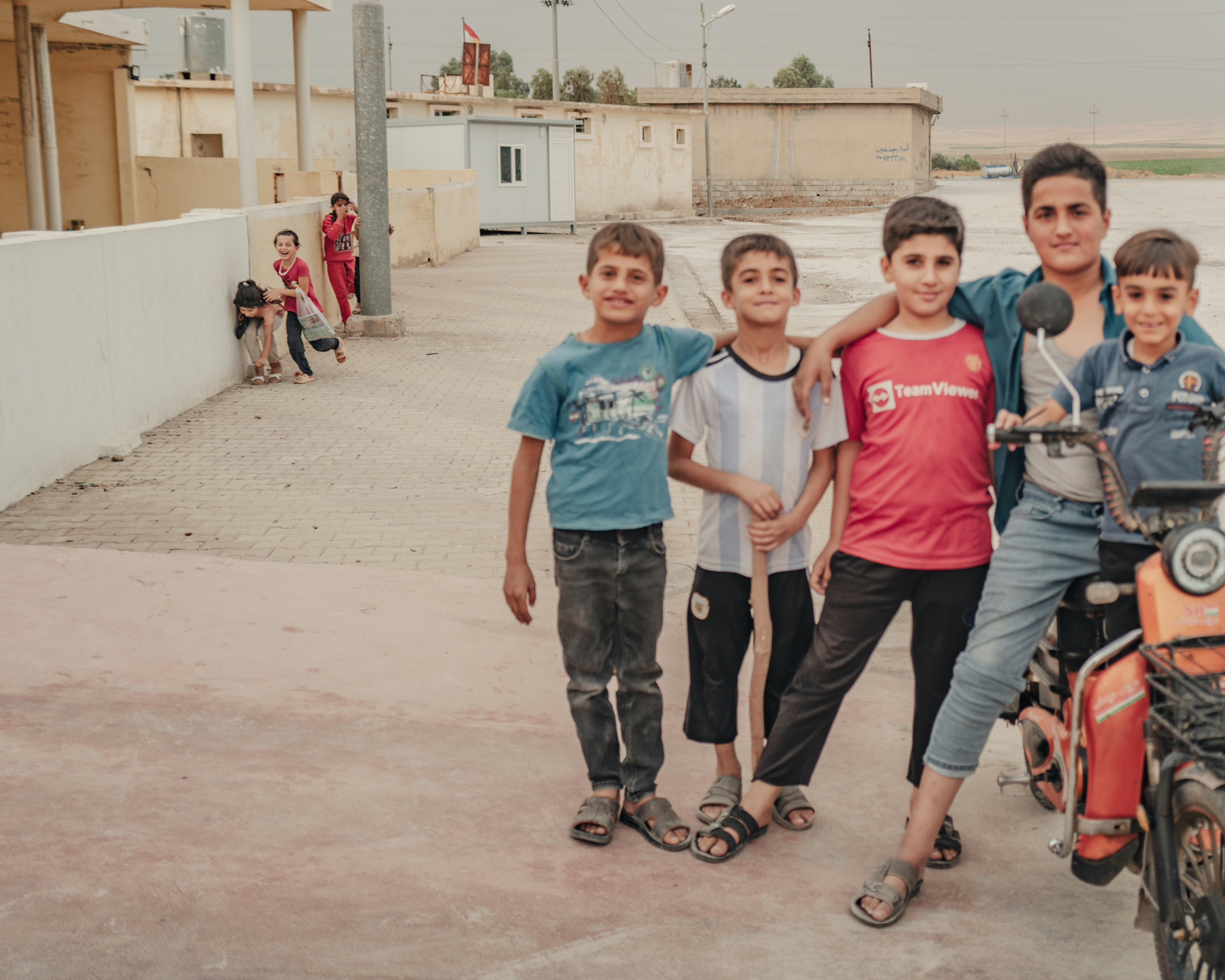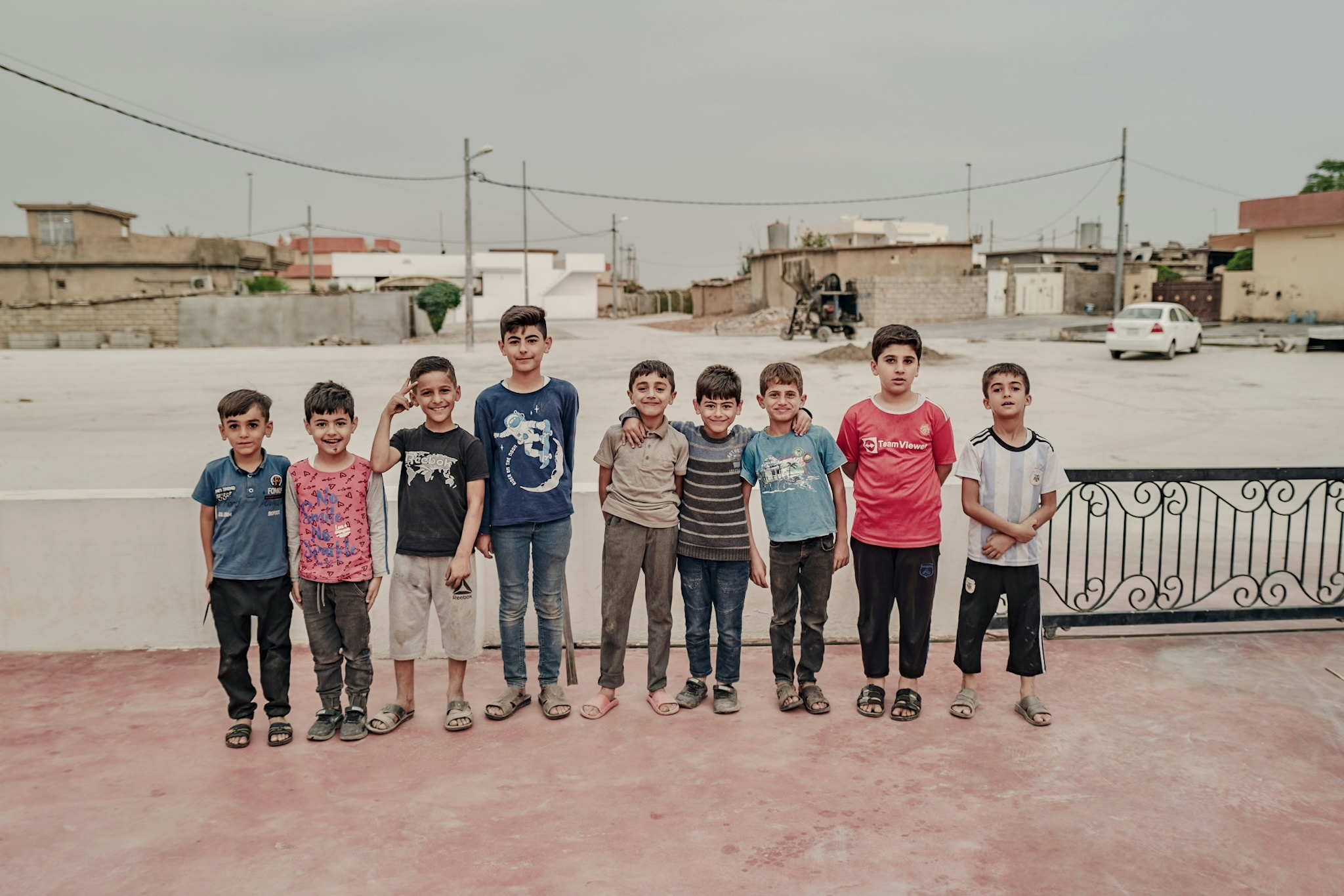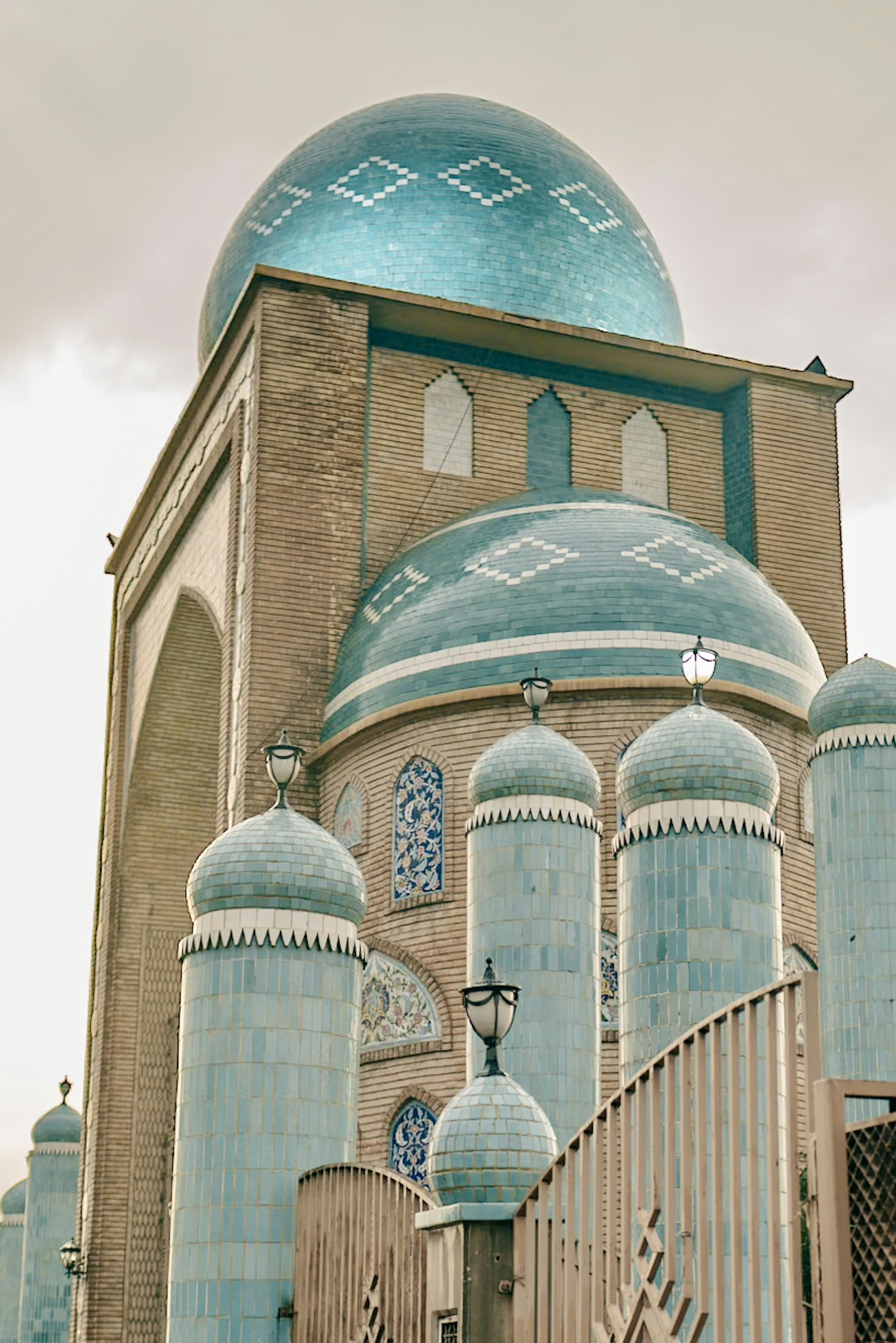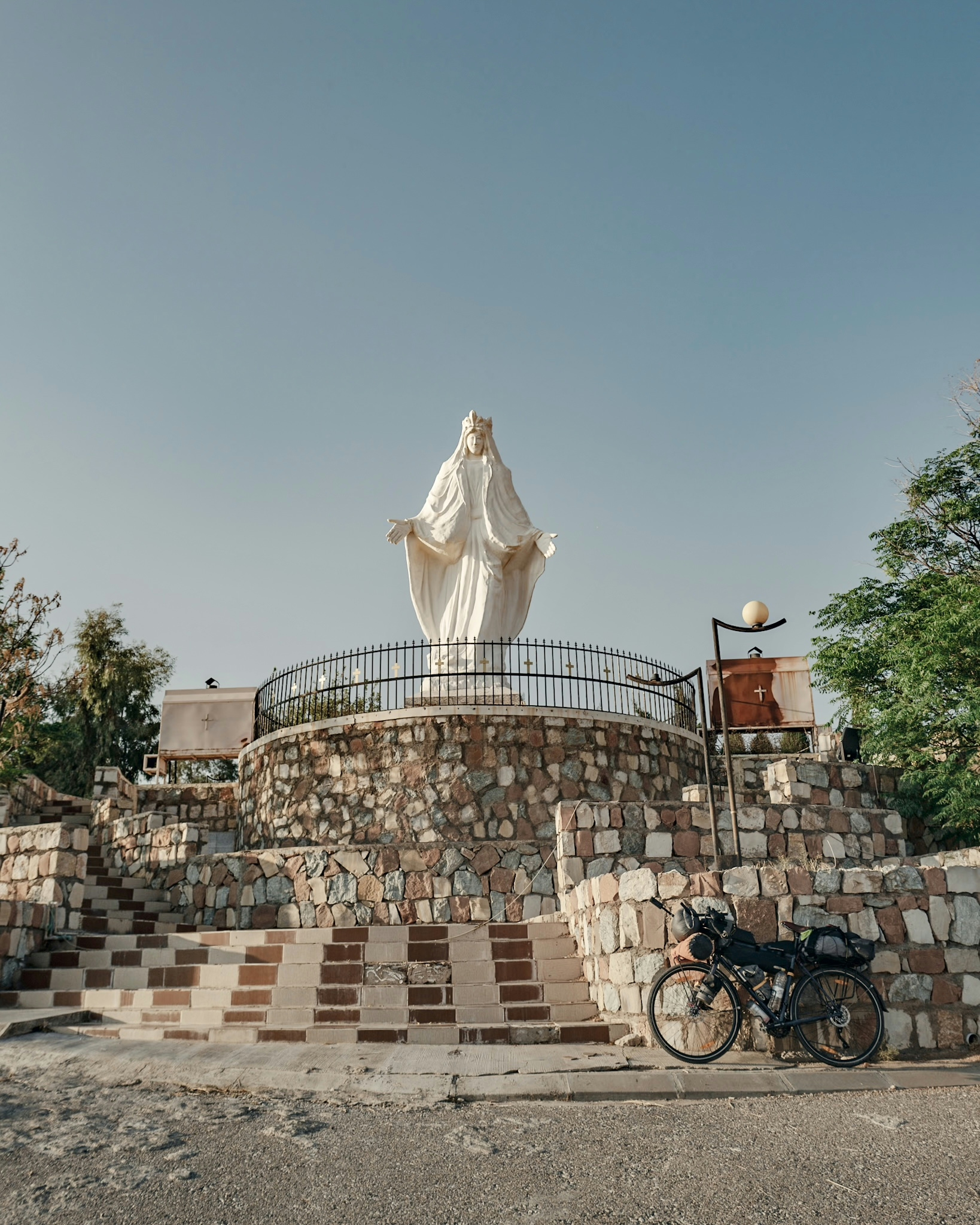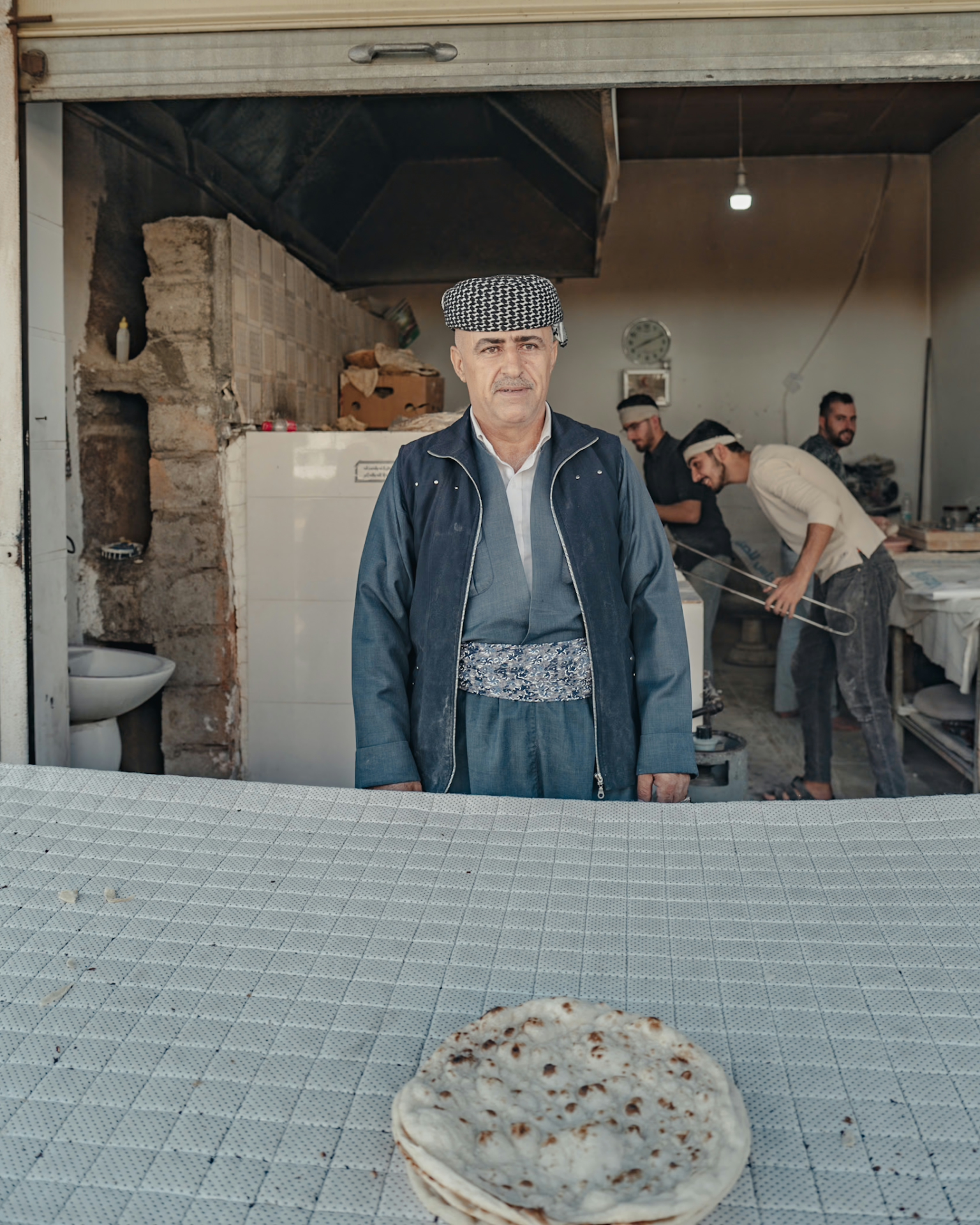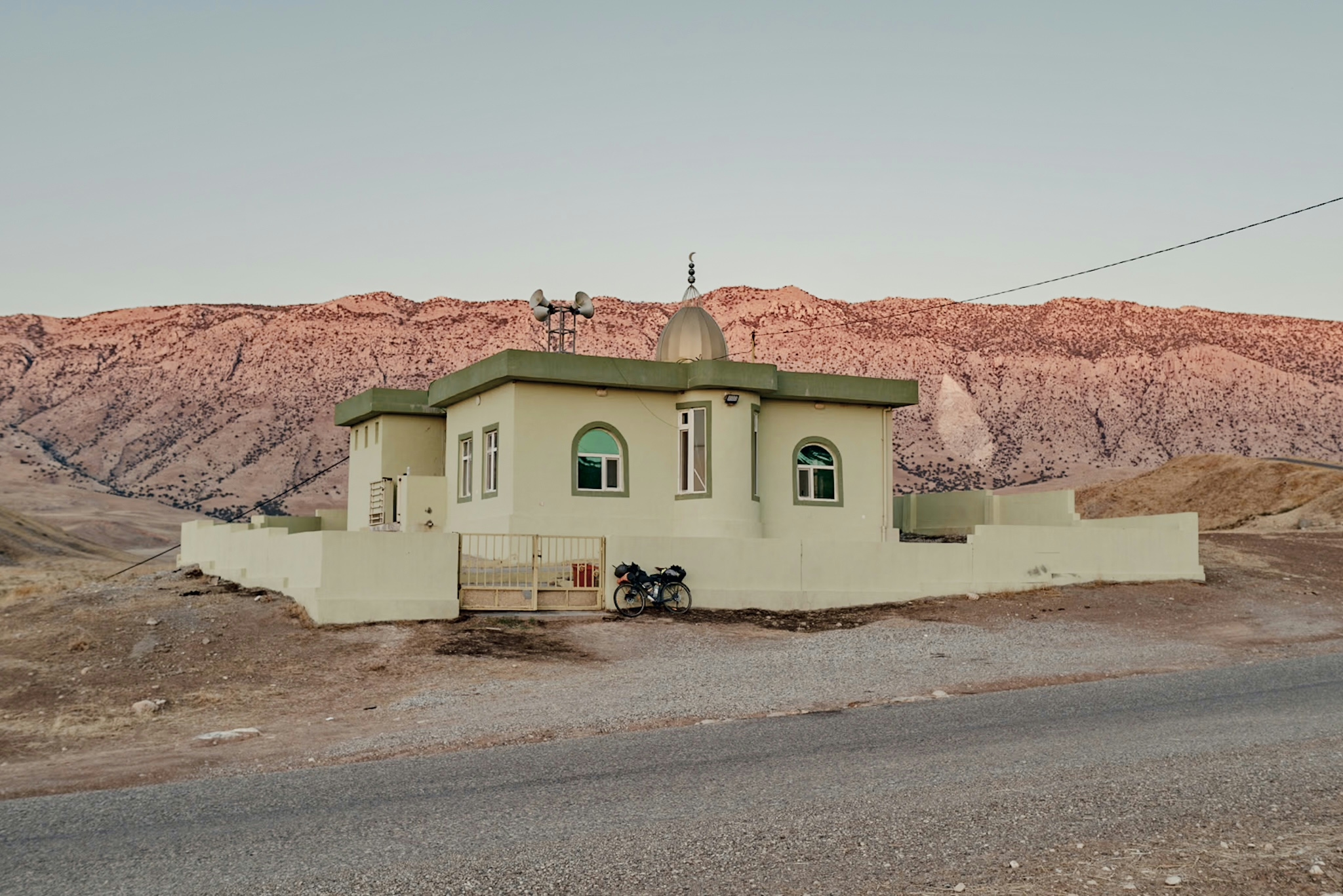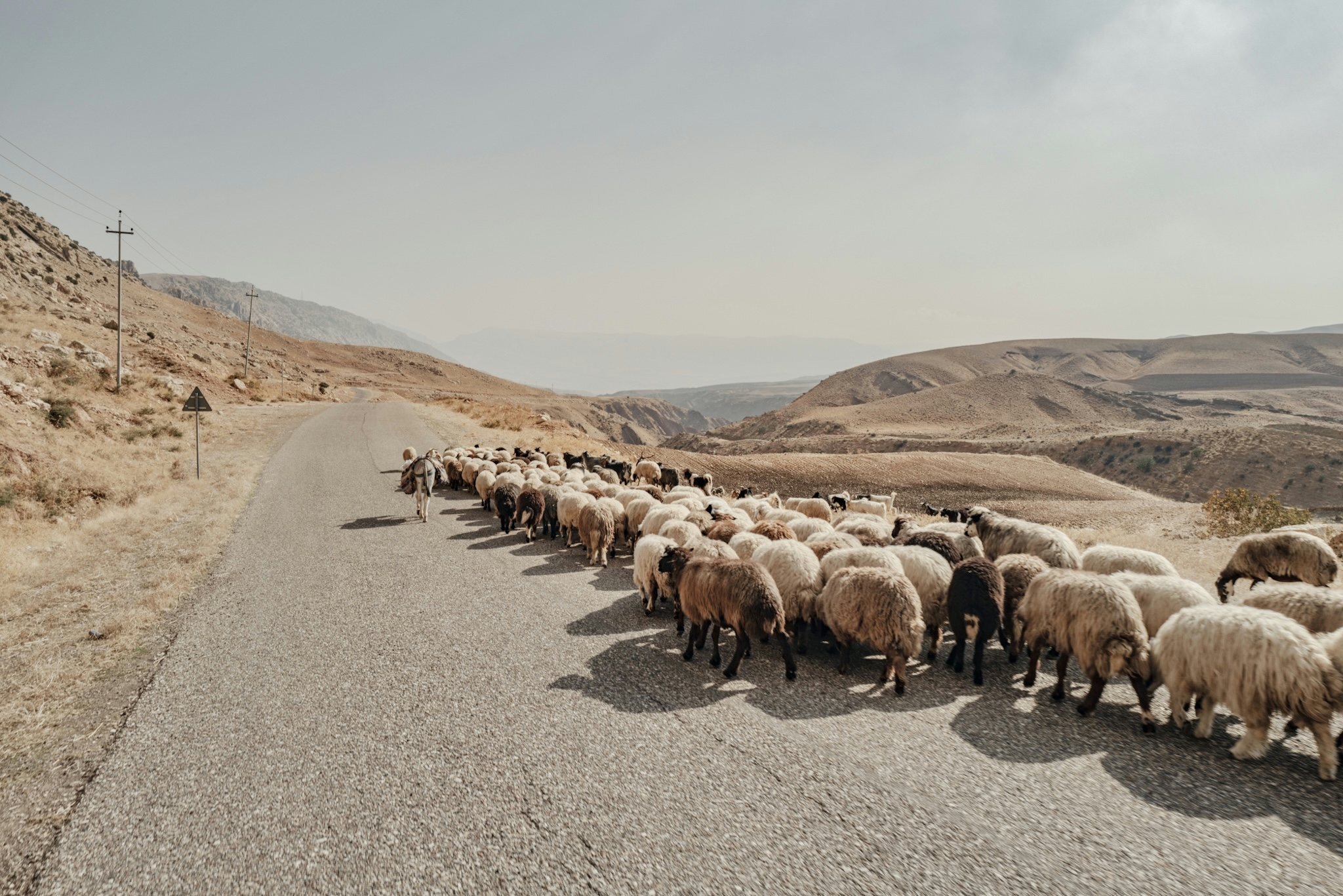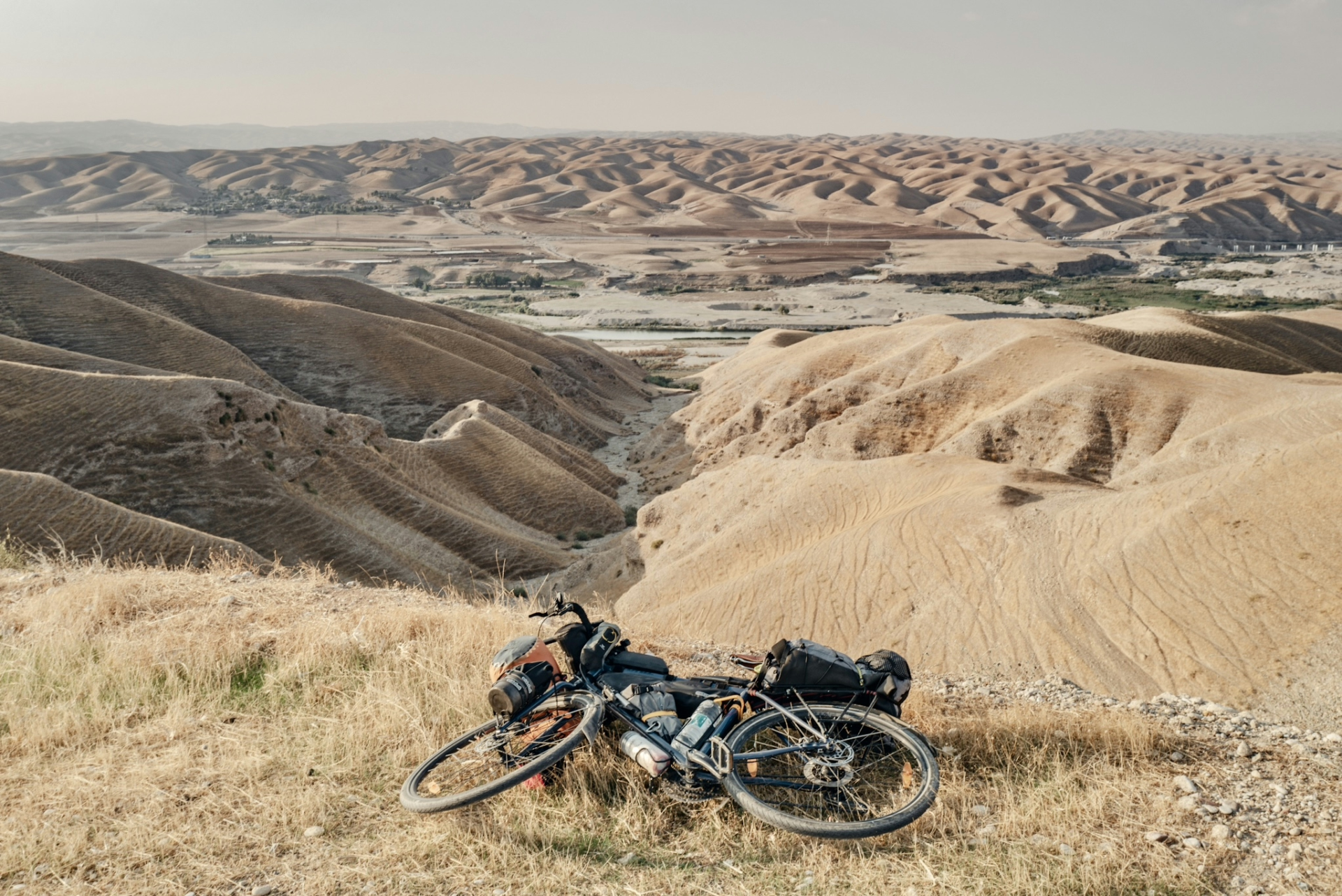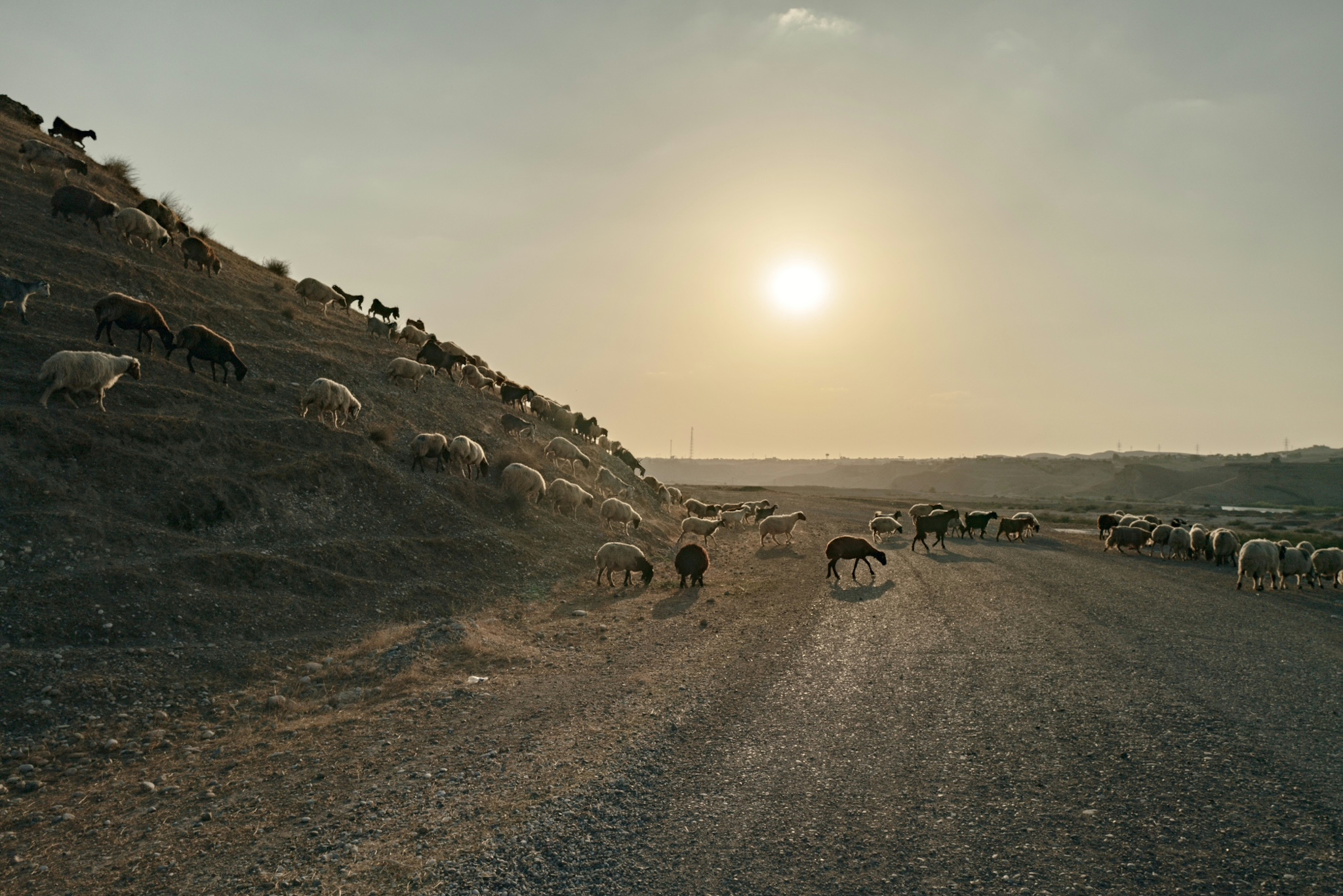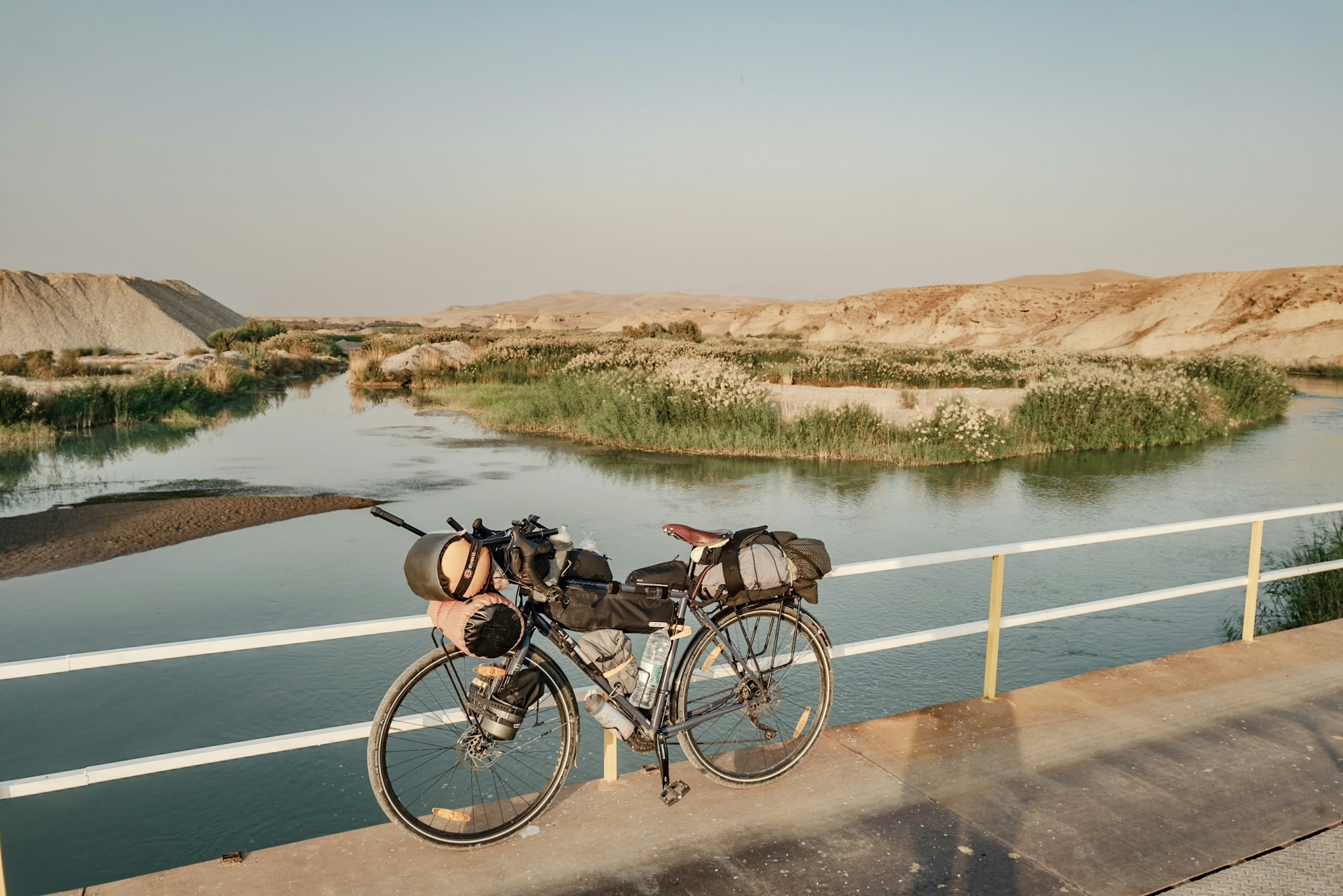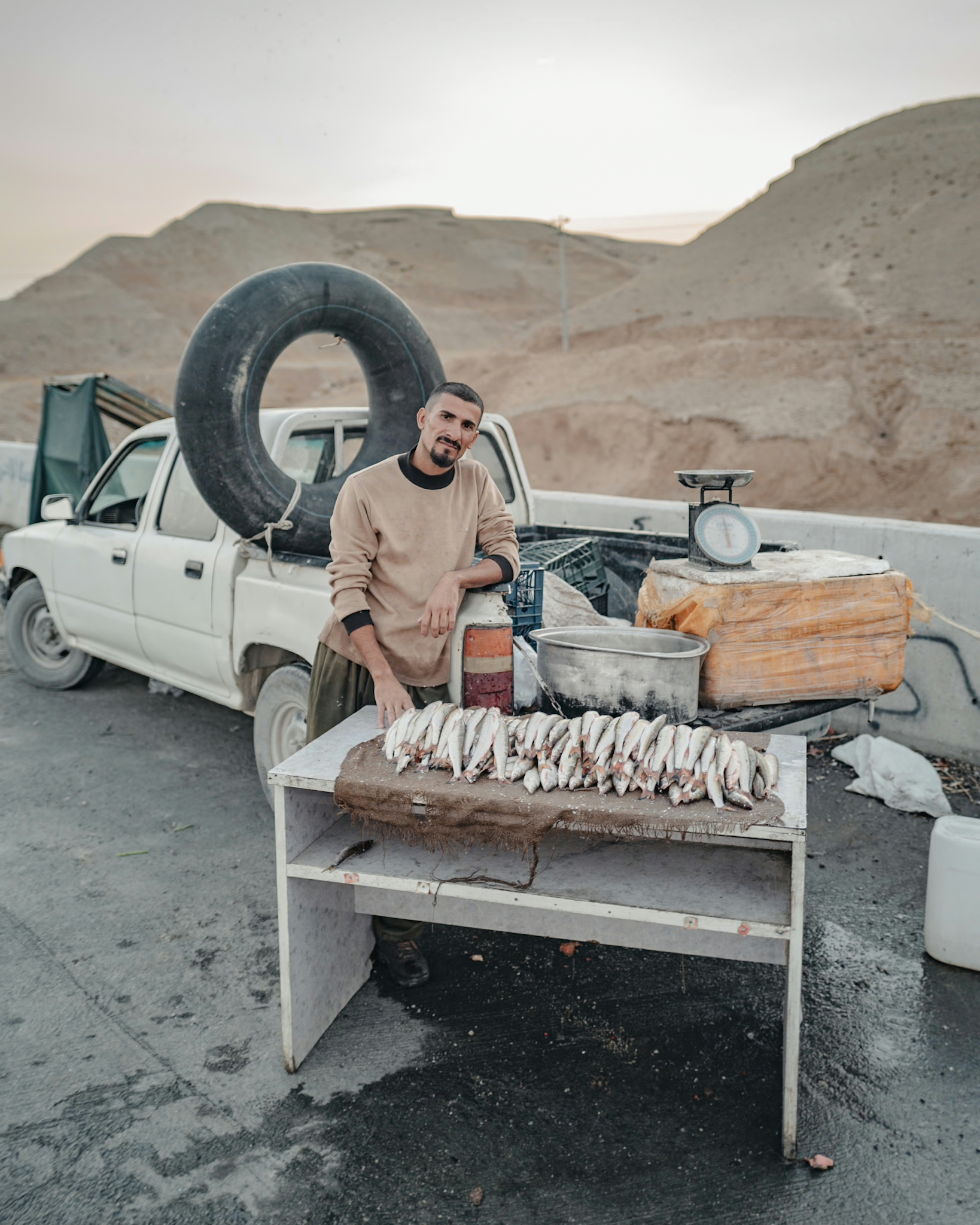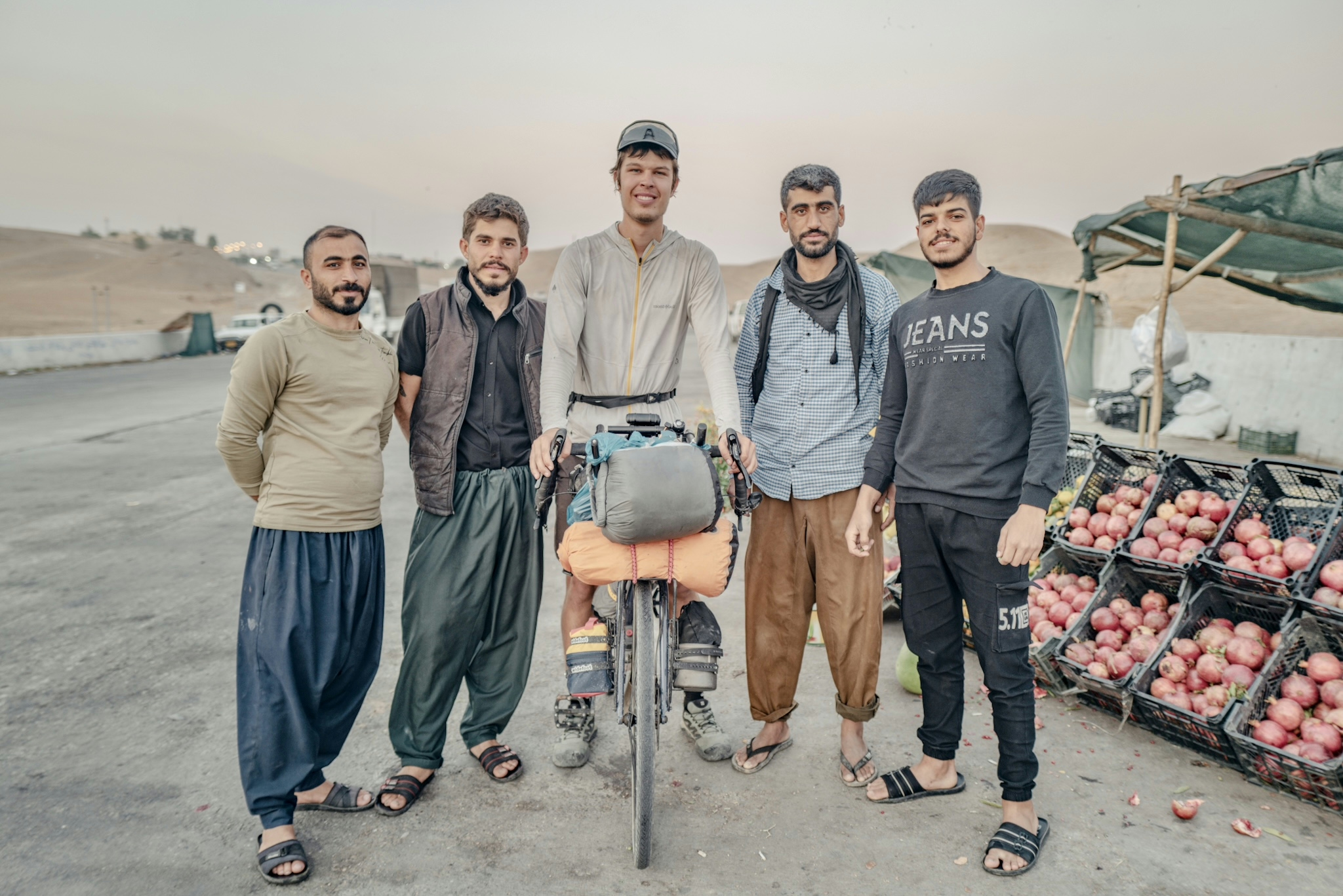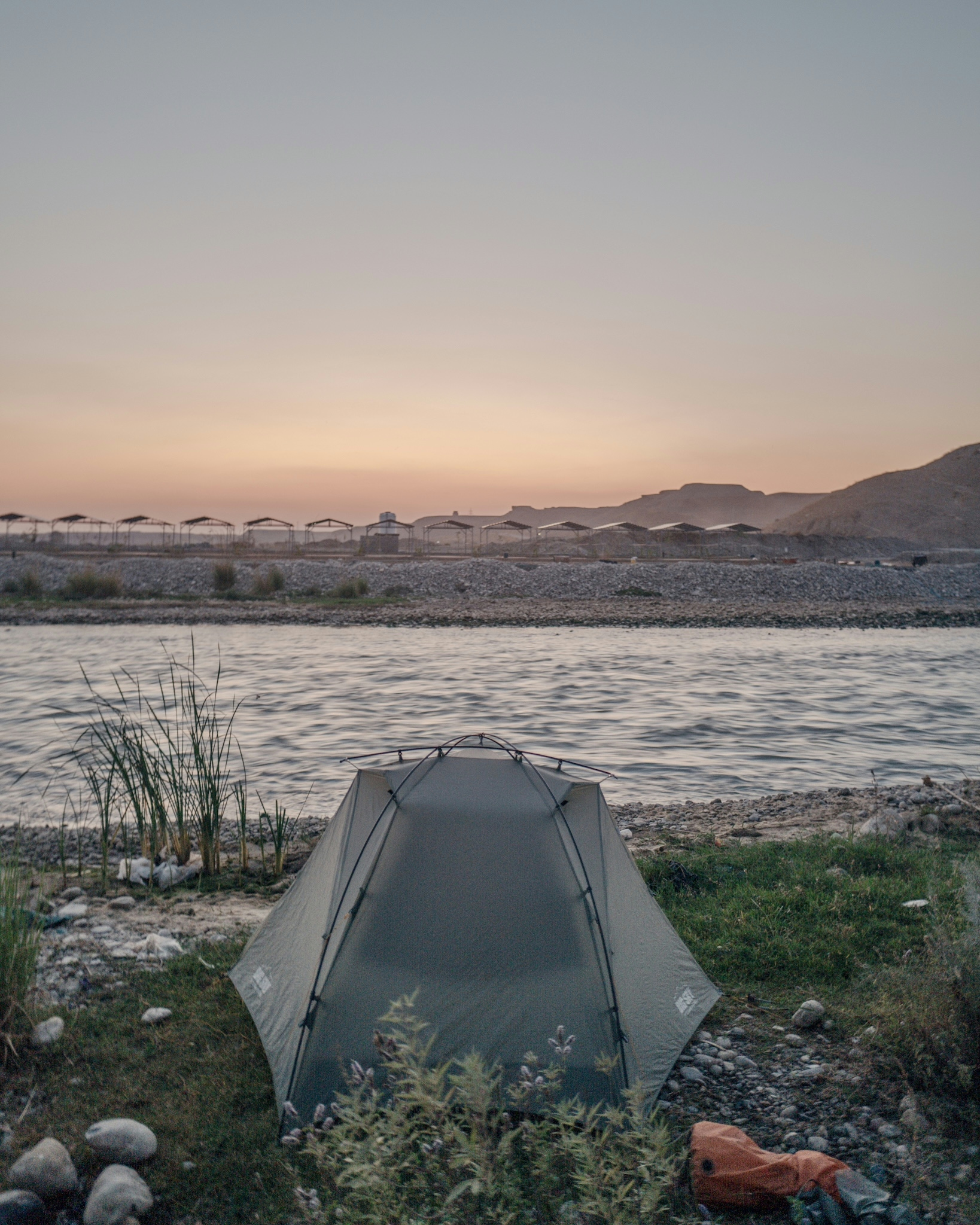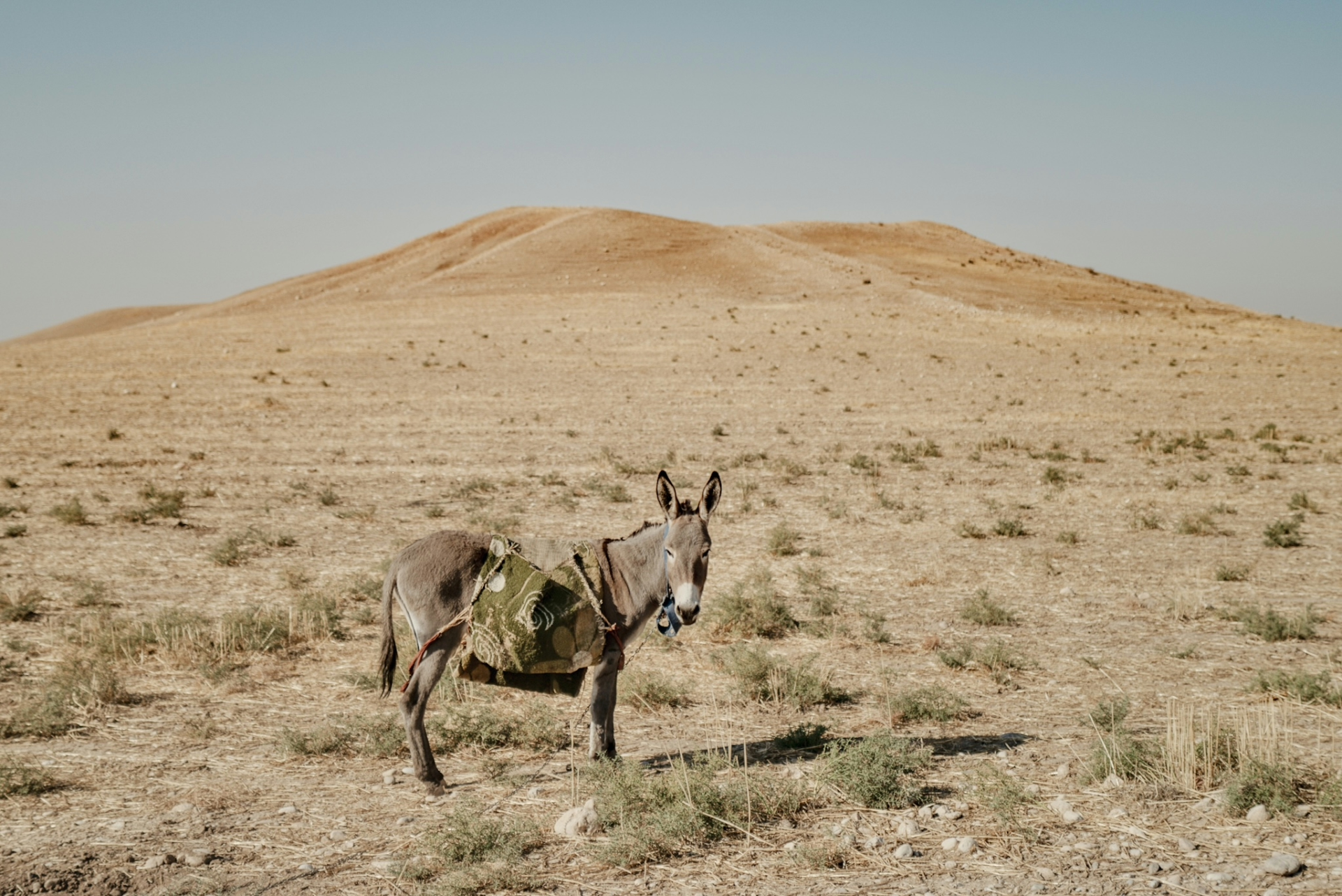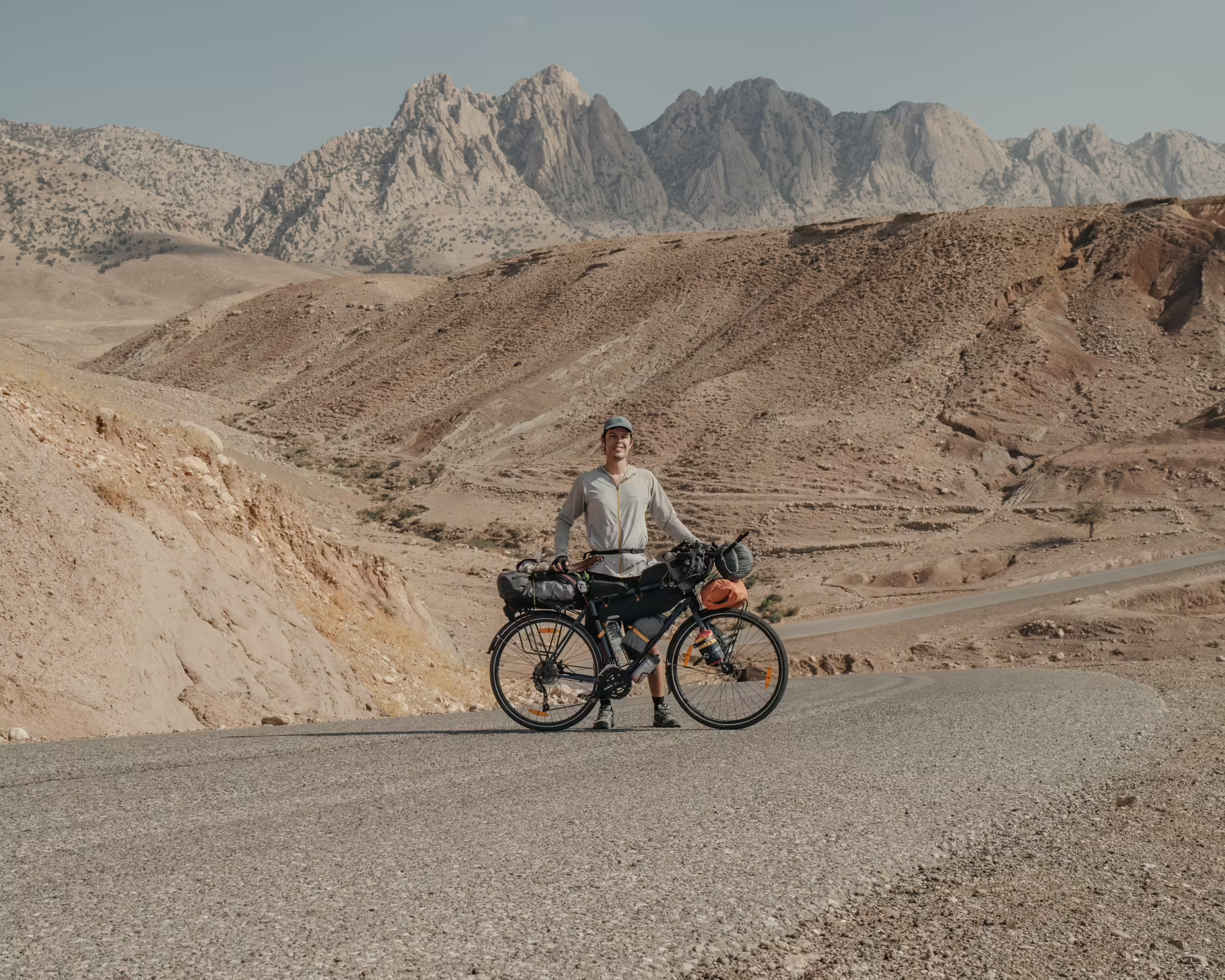
The country (that’s officially not a country) where it’s near impossible to camp or pay for things. The Kurds are the largest ethnic minority without their own country – they live in Turkey, Syria, Iraq and Iran. The KRG, Kurdistan-Regional-Government in Northern Iraq however, is basically a country. An Autonomous region with its own government, military and visa policy.
When I cycled across this region last year, I had to pay for an eVisa, but it was recently announced that citizens of multiple countries can now enter visa-free. I smoothly crossed the Ibrahim-Khalil border coming from Turkey, and continued cycling to Zakho, the first major city in order to buy a SIM card at AsiaCell. ATMs in Kurdistan-Iraq are sparse and barely work with foreign cards, it’s better to bring USD as you will be offered a better exchange rate than the one you see on the internet.
In the evening I cycled out of the city in order to find a camping spot, but was met with confusion at the first military checkpoint. The soldiers called over their boss, who to my surprise spoke fluent German, as he had worked in Munich for several years. He promptly invited me for dinner and allowed me to camp at the checkpoint. After a free breakfast the next morning they sent me off with probably two kilograms of snacks and drinks.
On my way to the mountains in the North I easily passed through the second checkpoint, but was halted at the next one. The officer deemed the small road I was taking as unsafe, waving his AK. I was urged to take a detour and cycle the main road. After cycling said road for a while and arriving at another checkpoint, I was not happy to hear that they wouldn’t allow me to cycle in the mountains at all, as there have been drone strikes by Turkey recently. I would have to turn back to Zakho where I started. As it was getting late I at least got another free dinner and bed for the night at the checkpoint.
Back in Zakho the next day I had no other option than to scrap my mountain route, and pass through the big cities instead. Avoiding the highway I once again opted for smaller roads, cycling all day without issues and setting up my camp in a village at the end of the day. At around midnight I was awoken by bright flashlights, I unzipped my tent door and was faced with three men holding their AK-47s. The initial scare didn’t last long once I realised that these were regular Kurdish soldiers. Once again I was told that the area isn’t safe, and should spend the night at the police station. Too tired to argue I agreed, we loaded my bike on a pickup and drove back to Zakho, where they gave me a bed and brought me breakfast in the morning.
It was now day 4 of trying to leave Zakho, and I had no options than to take the highway. To my surprise I met two other bicycle travellers on the way, and together we made it to the major city of Duhok. We got ourselves a hotel room and got to meet the hotel owner, Mohammed, who was so glad to see foreign tourists that he invited us for dinner at a five star restaurant and later took us to a bar, neither of which I expected to find in Iraq. Unfortunately I woke up with fever the next morning, and decided to stay at the hotel for a few more days. It was borderline uncomfortable for me when Mohammed told me I could stay at his hotel for free for as long as I want, on top of that, he frequently and unannounced brought me food to my room, never allowing me to repay him.
After saying goodbye when I was fit again I started cycling towards the village of Lalish, the holiest place for the Yezidis, one of many religious minorities in the region. They have been persecuted by ISIS in the last decade which resulted in many fleeing to the West. While cycling I was stopped by a Yezidi who lives in Germany and was currently visiting relatives. He invited me to share lunch with his family and then took me to Lalish and gave a me a free tour of the place, which is famous for its cone-shaped temples. He also introduced me to the highest ranked priest, named Babe Cawish.
The following days I made my way towards Erbil, the capital of Kurdistan-Iraq, in order to pick up my visa for Iran. Erbil is surprisingly modern, you can find working ATMs, Western expats and South Asian guest workers. Even Carrefour. The main sights are the historic citadel and the bazaars. Traffic can get quite busy so I was glad when I was on my way towards Iran, being able to take smaller roads again as this regions is perfectly safe.
The landscape was getting a drier, but the hospitality of the people remained the same. It would take too long to write about every single encounter, but let’s just say that in over three weeks in this country I spent one single night in my tent, always getting invited into peoples homes for food and to spend the night. I spent maybe a total of $50 during my time.
After passing by small villages, friendly shepherds and less friendly shepherd dogs, I eventually I reached the Parvez-Khan border, which is the main trading port between Kurdistan-Iraq and Iran. It was full of trucks (which by the way are really smelly in Iraq because they use dirty petrol) and quite dusty. Asking for directions at the border I once again was invited to have lunch with the workers, a perfect send-off for Kurdistan-Iraq.
I hope to be back one day and explore more of the country, especially the mountains in the North, which look very scenic. The Kurds are by far the friendliest, most hospitable people I have ever encountered. I highly recommend you to pay them a visit if you can.
